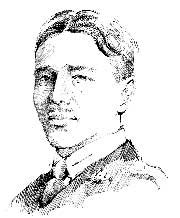Shropshire
BIRTH OF EVOLUTION ∗ AN APE OR A BISHOP
∗ EMPIRE BUILDER
Charles Darwin, the Father of Evolution.
SHROPSHIRE FOLK
William Penny Brookes ∗ Wilfred Owen ∗ Thomas Minton ∗ Edith Pargeter
Charles Darwin
CHARLES DARWIN, one of the most influential and controversial Englishmen of all time, who challenged and changed the accepted wisdom of much of the world, was born at THE MOUNT, in Shrewsbury, in 1809. He was the fifth of six children and second son of Dr Robert Darwin, who had built The Mount in 1797.
Dr Robert was a keen gardener and planted many varieties of trees and shrubs in the extensive garden he laid out around the house. No doubt Charles’s interest in botany and plants was nurtured by walking around the garden and studying his father’s ‘perennial garden diary’.
In 1831 Charles embarked upon one of mankind’s most far-reaching voyages of exploration, spending five years sailing around the world on HMS Beagle as an unpaid naturalist. What he saw of the animals and plant life in such places as the Great Barrier Reef and the Galapagos Islands led him to develop his THEORY OF EVOLUTION.
Charles Darwin’s birthplace, The Mount, used for many years as a Local Valuation Office, is to be developed as a museum in his memory. Much of the garden has been built over, but standing in what remains are trees and shrubs grown from seeds brought back from that extraordinary voyage by Shrewsbury’s most famous son.
In 1897 a statue of Charles Darwin was erected outside what in his day was the school and is now the public library. A short time before, the steeple of nearby St Mary’s church collapsed – a sign, some people thought, of God’s disapproval of Darwin’s theory, which challenged the Bible’s account of Creation.
Darwin had an impressive pedigree. His maternal grandfather was the pottery maker Josiah Wedgwood, while his paternal grandfather was ERASMUS DARWIN, inventor and member of that powerhouse of the Industrial Revolution, the Lunar Society. Erasmus had come up with his own theory of evolution 60 years before his grandson in a book called Zoonomia, or the Laws of Organic Life, published in 1794. Earlier still he had devised a family coat of arms consisting of three scallops with the motto ‘E Conchis Omnia’ or ‘everything from shells’.
Darwin’s Theory of Evolution
Darwin put forward the argument that all species have evolved from a limited number of original species by adapting to their environment over time, resulting in the ‘natural selection’ of those organisms best suited to survive and reproduce in their particular environment, or what the philosopher Herbert Spencer called ‘the survival of the fittest’. This ran counter to the biblical explanation that God created the world and all the creatures in it just as they are. It also challenged the accepted science on the age of the earth, since evolution would have taken millions of years to achieve.
Many people were offended by the idea that man might be developed from apes, an argument that came to a head during the legendary debate between the Bishop of Oxford, Samuel Wilberforce (Soapy Sam), son of the anti-slavery campaigner William Wilberforce, and ‘Darwin’s Bulldog’, the pro-evolution zoologist Thomas Huxley. When Wilberforce asked Huxley, ‘Is it through your grandfather or your grandmother that you claim descent from a monkey?’, Huxley replied with words to the effect that he would rather be descended from an ape than a Bishop.
Darwin himself was deeply upset by the controversy caused by his theory, and by the stridency of supporters such as Huxley, for he never believed that evolution was incompatible with a belief in God. Weakened by his long voyage on the Beagle he retired to Downe House in Kent, where he pottered happily with his wife and children for the remaining 40 years of his life. He is buried in Westminster Abbey.
Clive of India
1725–74
Described by William Pitt the Younger as ‘a Heaven-sent General’, ROBERT CLIVE, the Englishman who won India for the British Empire, was born in 1725 at Styche Hall in the village of MORETON SAY, near the busy market town of Market Drayton, one of 13 children of a lawyer. Brought up largely by childless relatives in Manchester and greatly spoilt, he was something of a tearaway, climbing the tower of Market Drayton church and frightening passers-by by pretending to be a gargoyle and setting up a protection racket in the town to extort money from the town’s shopkeepers. He was expelled from three schools.
Finally, much to the relief of Market Drayton, Clive’s father sent him to India, as a clerk with the East India Company in Madras. Suffering from what we now know as manic depression, he quickly got bored and homesick and felt that life was not worth living. When he tried to kill himself, however, his pistol failed to go off twice and he concluded, ‘I am reserved for something.’
In 1746 Madras was captured by the French, and Clive escaped to obtain a commission in the East India Company’s army and find his true calling. He established his reputation in 1751 by taking the city of Arcot with just 200 men, and then defending it from a siege by over 10,000 attackers. In 1756 he was sent to retake Calcutta from the new Nabob of Bengal, Suraj Dowlah, who had imprisoned 146 members of the East India Company staff in stifling temperatures in a cell measuring 14 ft by 18 ft (4 × 5.5 m), later known as the Black Hole of Calcutta. Only 23 people came out alive. In 1757 Clive’s 3,000 troops defeated the 50,000-strong army of the Nabob, complete with French artillery, at the Battle of Plassey, a remarkable victory which gained control over Bengal for the British and effectively drove the French out of India for ever. Clive then installed a new Nabob, Mir Jaffier, and was himself appointed as the first Governor of Bengal.
Over the next ten years Clive established British rule over vast areas of India, but his great wealth and influence caused envy back in England and Clive was accused many times of corruption, despite Parliament conceding that he had rendered ‘great and meritorious service to his country’. On 22 November 1774, his depression finally took its toll and Clive of India was found dead, most likely by his own hand, at his house in London’s Berkeley Square.
Well over 200 years later, in 2006, Clive of India’s pet tortoise ADWAITYA, brought from the Seychelles by an English seaman in the 1760s as a gift to Clive, finally died of old age at Calcutta Zoo, aged 255.
Well, I never  knew this
knew this
about
SHROPSHIRE FOLK
William Penny Brookes
1809–95
Father of the Modern Olympics
If you go down to the beautiful, and usually quite quiet old town of MUCH WENLOCK in July, you’re sure of a big surprise. It was here, in 1850, that local doctor WILLIAM PENNY BROOKES, a prime mover in the introduction of physical education in English schools, instituted the forerunner of the modern Olympic games ‘for the promotion of moral, physical and intellectual improvement’.
Brookes had studied the Ancient Olympics in great detail, and his vision was to revive the ideals of that great competition. The Much Wenlock games were open to sportsmen from all the surrounding towns and villages, from all classes and professions, involved a variety of sports from quoit throwing to cricket, and were opened with much pageantry as the participants paraded through the town waving banners and flags.
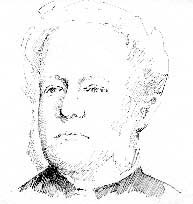
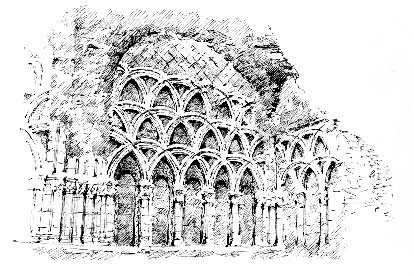
A wealthy Frenchman called BARON DE COUBERTAIN visited the Much Wenlock games as a young man, and was deeply impressed. He had long discussions with Dr Brookes about how to expand the games for the international stage and in 1896, just months after Brookes had died at the age of 86, de Coubertain inaugurated the first modern Olympiad, in Athens. Many of the ideals and ingredients from the Much Wenlock games were incorporated into those first games, and are still present in the Olympic Games of today. In 1994 the president of the International Olympic Committee, Juan Antonio Samaranch, paid a visit to Much Wenlock and laid a wreath on the grave of William Penny Brookes saying, ‘I came to pay homage and tribute to Dr Brookes, who really was the founder of the modern Olympic Games.’
Wilfred Owen
1893–1918
Regarded by many as the finest war poet in the English language, WILFRED OWEN was born in Oswestry. He was teaching English in France when the First World War broke out, and returned to England to enlist, for although he was a deeply committed Christian who believed war was wrong, he felt ashamed of his inactivity while his own generation were fighting and dying, and he despised what he called ‘wishy-washy’ pacifism. It was this conflict that inspired his remarkable poetry. A courageous and popular commander, he won a Military Cross for bravery at Amiens, when he single handedly captured a German machine gun and turned it on the enemy. He was shot and killed leading his men across the Sambre canal at Ors, just one week before the end of the war – his parents heard of his death while the Armistice bells were ringing.
Benjamin Britten, who inherited the mantle of Sir Edward Elgar as the great English composer, based his work The War Requiem on the poems of Wilfred Owen.
THOMAS MINTON (1765–1836), potter, inventor of the Willow Pattern, was born in SHREWSBURY.
EDITH PARGETER (1913–95), author better known as Ellis Peters, creator of the Shrewsbury-based detective monk Brother Cadfael, was born in HORSEHAY.
What passing-bells for these who die as cattle?
Only the monstrous anger of the guns.
Only the stuttering rifles’ rapid rattle
Can patter out their hasty orisons.
No mockeries for them from prayers or bells,
Nor any voice of mourning, save the choirs, –
The shrill, demented choirs of wailing shells . . .
WILFRED OWEN, ‘Anthem for Doomed Youth’


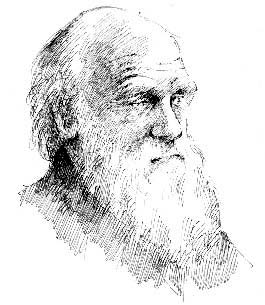

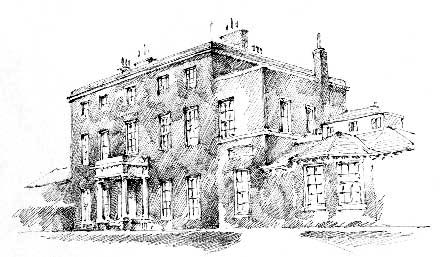


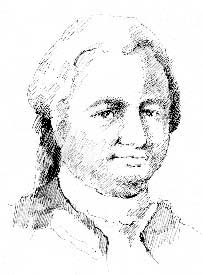
 knew this
knew this

